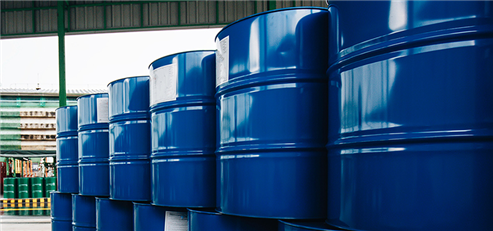Crude %Oil prices are down 8% and near $60 U.S. a barrel as the OPEC+ cartel increases production while new U.S. tariffs hurt global energy demand.
The demand outlook for oil has taken hit after U.S. President Donald Trump announced a baseline 10% tariff on nearly all imports into America.
The tariffs are expected to be especially devastating on China, which President Trump hit with an additional 34% duty.
News of the U.S. tariffs, and retaliatory measures around the world, has sent stock markets into a tailspin and raised concerns about global demand for commodities, including oil and gas.
However, just as the tariff turmoil peaks, the Organization of the Petroleum Exporting Countries and its allies (OPEC+), which produce about 40% of the world’s crude oil, has gone ahead with plans to nearly triple oil production.
The production increase has raised the prospect that OPEC+ could swamp the global market with crude oil at a time when inventories are already high and demand is sinking.
Eight key OPEC+ producers agreed to raise combined crude oil output by 411,000 barrels per day, speeding up the pace of their scheduled hikes and pushing down oil prices by nearly 10%.
Brent crude oil, the international standard, is now trading at just under $65 U.S. per barrel.
West Texas Intermediate (WTI) crude oil, the American standard, is trading at $61.98 U.S. a barrel. Both benchmarks are at their lowest levels in more than a year.
The production increase comes as U.S. investment bank %GoldmanSachs (NYSE: $GS) lowers its December 2025 forecasts for oil prices to $66 U.S. a barrel for Brent crude and $62 U.S. for WTI, citing “downside risks” for global energy markets.
Goldman Sachs also cut its forecast for the oil prices in 2026, saying “price volatility is likely to stay elevated on higher recession risk.”
For its part, OPEC+ said it increased crude production because it remains bullish on oil demand later in the year. However, that appears to be a minority opinion.
There is speculation online and among some analysts that OPEC+ raised its production to lower oil prices and appease President Trump who has promised consumers lower prices at the gas pumps. OPEC+ has denied those charges.





